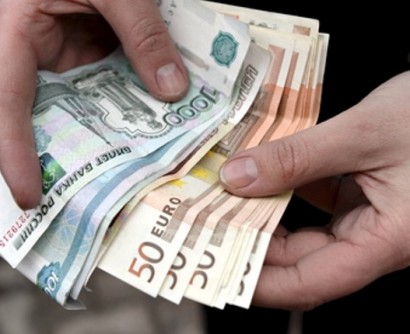+18 °C, +15 °C ... +28 °C Tomorrow:+28 °C

Russia’s rouble crisis is posing a major threat to countries along its southern fringe, whose economies rely heavily on billions of dollars shipped home every year by their own citizens working within Russia. The 50% drop in the rouble has not only decimated the value of remittances sent home by workers from the Caucasus and central Asia, but is discouraging migrants from staying in Russia to earn a salary for themselves and their families. According to data projections by the Guardian, based on World Bank figures, nine countries that rely heavily on cash sent home from Russia for their economic buoyancy could collectively lose more than $10bn (£6.6bn) in 2015 because of the weak Russian currency. “I’ve sacrificed starting a family, I’ve sacrificed any kind of normal life to work here, and now I’m only able to send home a few hundred dollars a month,” said Aziz, who works at a car repair plant in northern Moscow. His regular job and some moonlighting as a cab driver has typically earned him around £600 per month to send home to his parents and sisters, who live in the Fergana valley in Uzbekistan. Now he is lucky to earn half that sum. “I’m starting to think there is not much point in staying. Life is miserable enough here anyway, the only reason to be here was for the money. I think it could be time to go home.” Aziz is not the only person thinking about leaving. As the economic situation in Russia deteriorates, authorities have also introduced a new harsher system for obtaining work permits for migrant workers. Currently, there are millions of citizens of former Soviet countries working illegally in Russia. “So far people are not leaving en masse, mainly because they are worried they won’t be able to come back,” says Gavkhar Dzhurayeva, who runs an organisation offering free legal support to migrant workers. “However, lots of people are talking about it, if things don’t improve.” The tendency could be problematic for Russia too, which is expected to rely on immigrant labour for the formidable building projects as the country prepares to host the 2018 World Cup. According to the World Bank, 21% of Armenia’s economy, 12% of Georgia’s, 31.5% of Kyrgyzstan’s, 25% of Moldova’s, 42% of Tajikistan’s, 5.5% of Ukraine’s, 4.5% of Lithuania’s, 2.5% of Azerbaijan’s and 12% of Uzbekistan’s, rely on remittances. These are some of the highest rates in the world. Of the five countries globally whose GDP is most reliant on these payments, three are former Soviet republics. In most of these cases money from immigrants in Russia comprises a significant portion of these inflows. About 40% of remittances to Armenia, Georgia, Moldova and Ukraine are from Russia, rising to 79% for Kyrgyzstan. |
MAMUL.am - News from Armenia, Artsakh (Nagorno-Karabakh) and the world
Republication or redistribution of MAMUL.am content is expressly prohibited without the prior written consent.
Address: 1 Charents str., Yerevan, Republic of Armenia.
Tel.: +374 (10) 55-20-59
E-mail: info@mamul.am
Tel.: +374 (91) 99-22-02
E-mail: marketing@mamul.am































